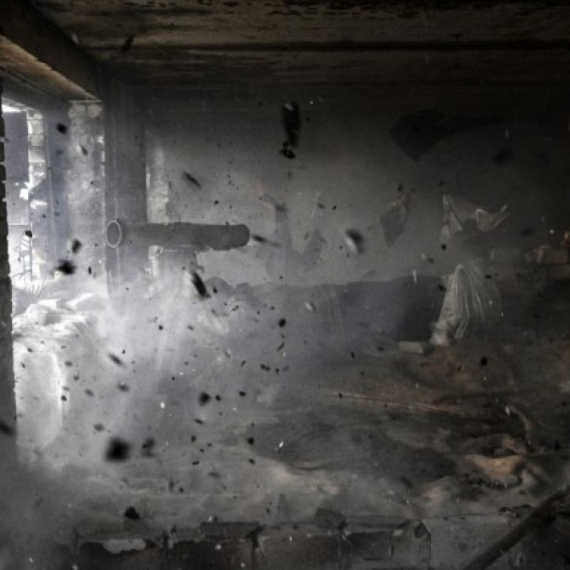Dinkić points finger at local governments, owners
Mlađan Dinkić said that many strikes in Serbia are mostly happening in companies which were not working well even before privatization.
Monday, 25.01.2010.
19:01

Mladjan Dinkic said that many strikes in Serbia are mostly happening in companies which were not working well even before privatization. The economy minister was quoted as saying in Novi Sad on MOnday that the wave of strikes is not surprising, “because the post-recession period is always difficult” but added that it has become a rule in Serbia that strikes are organized by companies that were working poorly before they were privatized. Dinkic points finger at local governments, owners “The problems in some companies can be solved, as is the case was with Kopaonik in Kursumlija, but in companies that have bare walls, no machines, and the state is not involved, such as 7. Jul, the state cannot solve the problems,” Dinkic said. He went on to state there has been “a lot of talk about bad privatizations in Serbia” and that he disagrees, blaming instead “bad owners not capable of leading a company”. “It turned out that some owners in Serbia received money from various criminal structures in order to buy the companies,” Dinkic said, adding that these kinds of companies are usually bought for more than the value of similar ones that are functioning well. Dinkic said that the strike of public companies in Novi Sad has nothing to do with the protests in the private sector, “because wages in the public sector are not a problem”. “Wages in Novi Sad’s public companies are certainly not lower than in the private sector, and if someone is dissatisfied and thinks that they can earn more, they should move into the private sector,” Dinkic was quoted as saying, and adding that there are “many unemployed persons who would take a job in the public sector gladly”. He said that the public sector is “spoiled” in Serbia, in comparison to the private sector, and that this could be one of the reasons behind the strike of the Novi Sad communal workers. The minister further sought to explain the strikes in Serbia recently, and stated that some local self-administrations have poor structure, and that they have “no vision for development”. Dinkic also wondered why there were no protests in Indjija, Loznica or other cities, but specifically in Kursumlija, adding that administrations in some municipalities are not allowing the problems caused by the economic crisis to bubble over, “while there are those that don’t know what to do and are transferring the problems to Belgrade.” Mladjan Dinkic (Tanjgu, file)
Dinkić points finger at local governments, owners
“The problems in some companies can be solved, as is the case was with Kopaonik in Kuršumlija, but in companies that have bare walls, no machines, and the state is not involved, such as 7. Jul, the state cannot solve the problems,” Dinkić said.He went on to state there has been “a lot of talk about bad privatizations in Serbia” and that he disagrees, blaming instead “bad owners not capable of leading a company”.
“It turned out that some owners in Serbia received money from various criminal structures in order to buy the companies,” Dinkić said, adding that these kinds of companies are usually bought for more than the value of similar ones that are functioning well.
Dinkić said that the strike of public companies in Novi Sad has nothing to do with the protests in the private sector, “because wages in the public sector are not a problem”.
“Wages in Novi Sad’s public companies are certainly not lower than in the private sector, and if someone is dissatisfied and thinks that they can earn more, they should move into the private sector,” Dinkić was quoted as saying, and adding that there are “many unemployed persons who would take a job in the public sector gladly”.
He said that the public sector is “spoiled” in Serbia, in comparison to the private sector, and that this could be one of the reasons behind the strike of the Novi Sad communal workers.
The minister further sought to explain the strikes in Serbia recently, and stated that some local self-administrations have poor structure, and that they have “no vision for development”.
Dinkić also wondered why there were no protests in Inđija, Loznica or other cities, but specifically in Kuršumlija, adding that administrations in some municipalities are not allowing the problems caused by the economic crisis to bubble over, “while there are those that don’t know what to do and are transferring the problems to Belgrade.”


























































Komentari 1
Pogledaj komentare